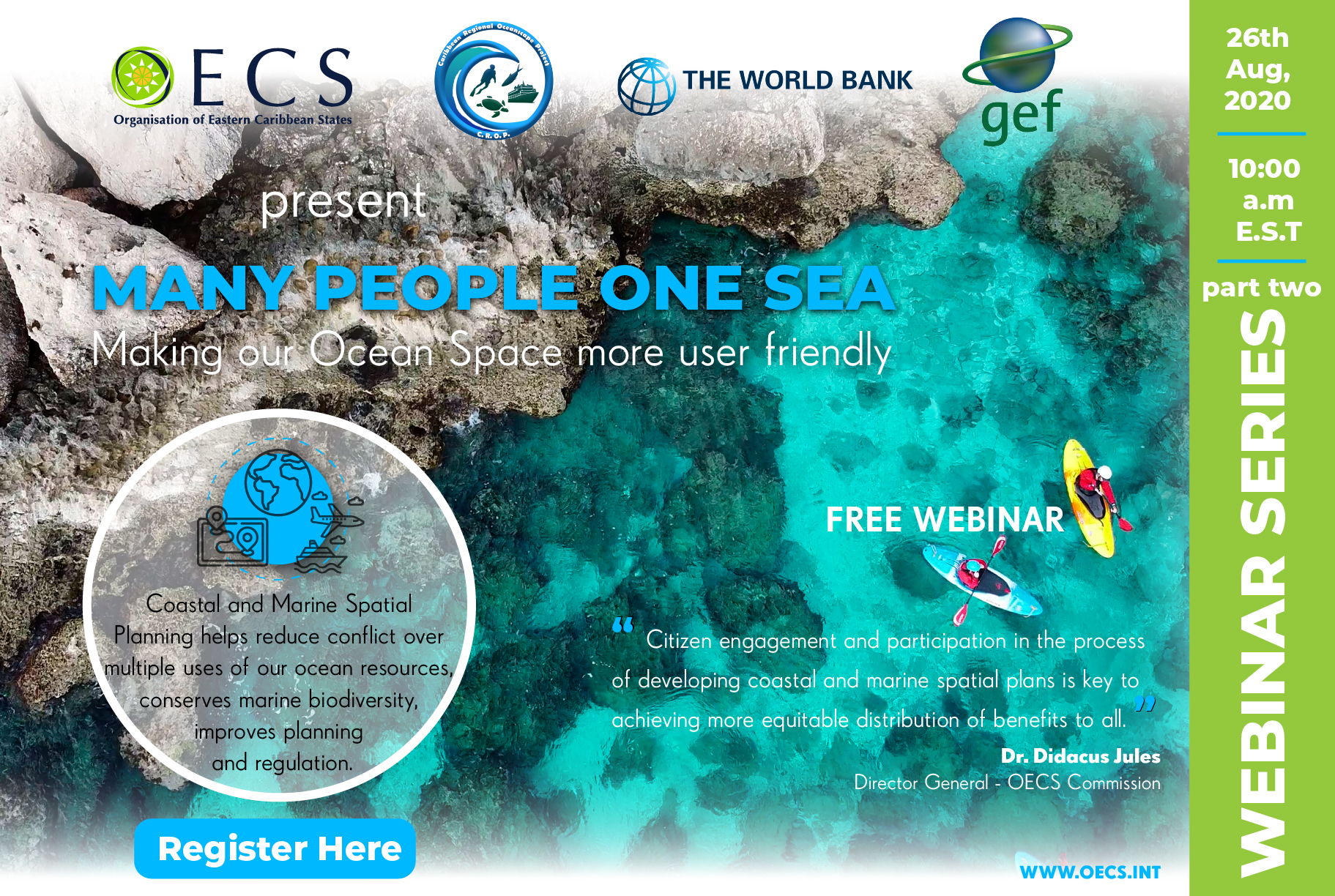Making the most of Marine Resources in the OECS
Media Release
The OECS Blue Economy Webinar Series continues on Wednesday August 26 at 10:00 a.m. with a webinar entitled Many People One Sea: Making our Ocean Space more user friendly. It will focus on Coastal and Marine Spatial Planning.
Under the Caribbean Regional Oceanscape Project (CROP), coastal and marine spatial plans are being developed for Dominica, Grenada, St. Kitts and Nevis, Saint Lucia, and St. Vincent and the Grenadines. This is part of an overall thrust to help the OECS transition to a Blue Economy.
The coastal and marine assets of OECS Member States offer unprecedented opportunity for further development of their economies. The actual area of the marine space of most of the island states of the OECS may be as much as 70 times greater than their land mass, with many sectors depending directly or indirectly on the marine environment, and as such, OECS economies are essentially ‘blue’ or dependent on ocean resources. The Caribbean ocean ‘blue’ economy generates approximately US$5 billion in seafood, US$39.9 billion in oil and gas, and US$57 billion in tourism annually.
Coordinator of Ocean Governance and Fisheries at the OECS Commission, David Robin says,
“Given that the marine space of our small island states is significantly larger than their land mass and clearly a substantial asset, transitioning to a Blue Economy is critical to ensuring the continued economic growth of our islands. Our coastal and marine assets offer unprecedented opportunity for strengthening of our economies and closing the gap on poverty and unemployment.”
The CROP is designed to contribute to the implementation of the Eastern Caribbean Regional Ocean Policy (ECROP) and its associated Strategic Action Plan (SAP) by strengthening capacity for ocean governance, as well as coastal and marine spatial planning in the participating countries, to facilitate their transition to a Blue Economy.
SUMMARY
Webinar 2
Topic: Many People One Sea: Making our Ocean Space more user friendly
When: Aug 26, 2020 10:00 AM (AST)
CLICK HERE TO REGISTER
About the Caribbean Region Oceanscape Project (CROP)
The Caribbean Regional Oceanscape Project (CROP) is a project funded by the Global Environment Facility through the World Bank. It aims to move OECS Member States closer to a blue economy. As one of the key Blue Economy frontrunners in the region, the OECS has taken the first step in enabling the transition to a Blue Economy through the adoption of the Eastern Caribbean Regional Ocean Policy (ECROP) and its associated Strategic Action Plan (ECROP SAP), endorsed by the OECS Heads of Government in 2013. The ECROP guides the future use of the region’s marine waters and provides a basis for enhanced coordination and management of ocean resources within the Eastern Caribbean. The ECROP is the first of its kind in the Caribbean region. Outputs under the CROP include an enhanced ECROP that is aligned to the Agenda 2030 for Sustainable Development; National Ocean Policies and Strategies; National Coastal and Marine Spatial Plans; a regional Marine Spatial Plan; readily available web-based and OECS relevant ocean education materials and courses; and spatial tools to enhance decision making on ocean matters.
